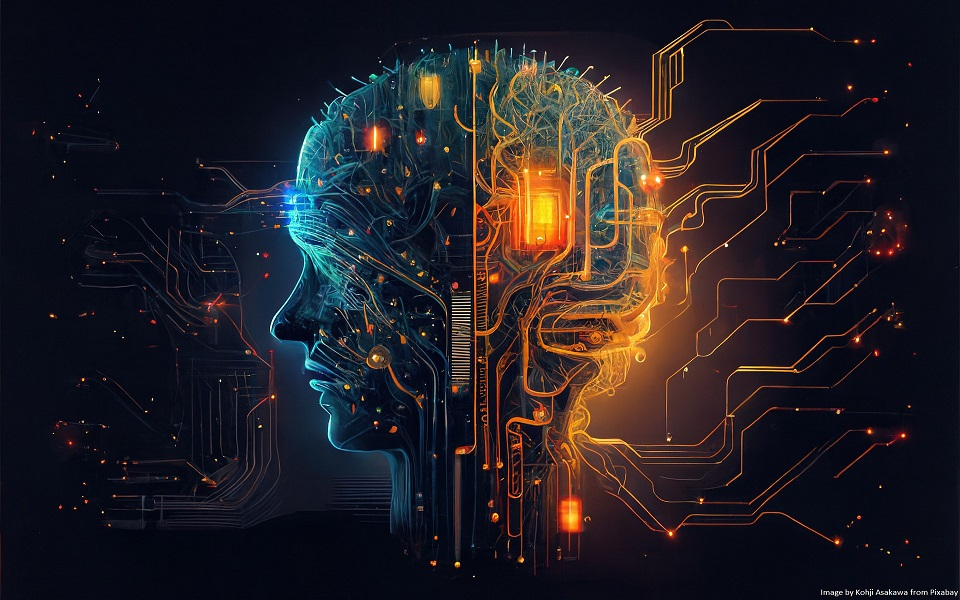
We might generate income when you click on links to our partners. Find out more.
What is synthetic basic intelligence (AGI), and why does it matter? As one of the most talked-about topics in technology today, it has actually stimulated a race among top business like OpenAI and Google to turn this advanced idea into truth. Understanding AGI is important due to the fact that it has the prospective to revamp markets, impact our society in extensive ways, and alter the way we interact with innovation. Here's what you require to learn about what it may be able to do, how it may transform markets and fields, and the considerable difficulties facing its development.

KEY TAKEAWAYS
• AGI differs from conventional AI in essential methods in that it would have the ability to think, find out on its own, and adjust to brand-new obstacles like humans unlike standard AI, which is developed for specialized tasks and runs within a limited scope. It needs people to upgrade and fine-tune capabilities. (Jump to Section).
• Once it comes true, AGI would be able to make amazing advances in several fields, including healthcare, research, and finance sectors. (Jump to Section).
• Creating AGI is tough due to the research challenges that include technical, ethical, and social problems. Addressing these difficulties is main to preserving the safe and favorable development of this innovation. (Jump to Section)
Featured Partners: Artificial Intelligence Software
Find out more
TABULATION
What is Artificial General Intelligence (AGI): A Clear Definition.
Understanding AGI vs Traditional AI.
Potential Applications of Artificial General Intelligence.
Challenges in Artificial General Intelligence Research.
3 Introductory AGI Courses to Consider.
Frequently Asked Questions (FAQs).
Bottom Line: Why Knowing What Is Artificial General Intelligence Matters.
What is Artificial General Intelligence (AGI): A Clear Definition
Artificial general intelligence, or AGI, refers to a kind of expert system (AI) that can analyze, learn, and carry out any cognitive job that a human can do. Unlike today's AI, which is developed to handle particular tasks like recommending products or processing information, AGI would be able to adapt to new challenges and apply understanding throughout numerous fields. To put it simply, this advanced kind of AI would think and reason like a human. While AGI holds great prospective, it's worth keeping in mind that it is still a concept today, without any completely developed systems available yet.

Key Capabilities of Artificial General Intelligence
AGI would have a variety of capabilities that mimic human intellectual functions, so it can carry out jobs beyond the narrow focus of the current AI tools in the market. Some key capabilities include the following:
Human-Like Reasoning: The innovation would have the ability to comprehend and make decisions the way humans do. It would think critically, solve issues, and come up with options based upon its own experiences and previous interactions, comparable to how we apply past understanding to new circumstances.
Solving Unfamiliar Problems: One of AGI's strengths is its possible to take on new issues. Unlike traditional AI, which is trained to perform specific jobs, AGI would have the capability to deal with issues it hasn't been straight trained to solve. It might figure out how to approach a totally new obstacle, simply like people do when faced with something we've never come across before.
Self-Learning and Adapting: AGI could fine-tune its abilities and discover from experience, without the requirement to be manually upgraded whenever. It would observe and examine data, discover from errors, and find much better ways to complete jobs over time. This means AGI might adapt to new circumstances and improve at tasks on its own.
Using Knowledge Across Different Areas: AGI would have the ability to take what it discovers in one location and use it to other jobs. For example, if it discovered how to fix mathematics issues, it might use that knowledge to attend to obstacles in other fields, like science or service. The capability to transfer skills across different areas is something human beings do naturally and would make the innovation versatile in diverse sectors.
Understanding and Responding to Emotions: Recognizing and responding to human emotions would also be within AGI's abilities. This would be essential in settings where understanding people's sensations matters, such as health care, customer care, or social scenarios. By reacting to feelings appropriately, AGI would be much better equipped to work with humans in a reliable method.
Understanding AGI vs Traditional AI
The table listed below offers a photo of the major distinctions between AI and conventional or narrow AI by highlighting their capabilities, flexibility, and present status.
AGI would have the capability to think, discover autonomously, and adjust to brand-new obstacles like people. However, it is still theoretical and has actually not been recognized yet. On the other hand, traditional AI is developed for specific tasks and operates within a fixed scope. It can not adapt to brand-new tasks without human input.
For instance, an AGI could learn to identify medical conditions, then utilize that knowledge to develop tailored treatment plans-and even adjust its technique based upon the patient's development. Additionally, it could apply this problem-solving capability to jobs in completely various fields, such as creating company strategies or advising on ecological conservation. On the other hand, traditional AI, like a diagnostic tool, can just evaluate medical data for users.atw.hu particular conditions. It can not adjust to other areas or improve on its own.
Potential Applications of Artificial General Intelligence
While AGI isn't here yet, its prospective applications cover many fields and hold great promise of extreme advancements in lots of sectors. Without being restricted to particular tasks like narrow AI, AGI would be extremely flexible and might use its capabilities to fix multi-disciplinary problems. It might overcome difficulties presently beyond the abilities of existing AI applications.
Transforming Healthcare

AGI would alter the game in health care by diagnosing complex and uncommon illness with higher precision, even in cases where symptoms are ambiguous or overlap with numerous conditions. It might produce highly tailored treatment plans by studying patient history, hereditary details, and real-time health data. In addition, AGI might accelerate drug discovery, determining possible treatments in weeks rather than years by processing enormous datasets and running predictive simulations.
Advancing Scientific Research
In clinical research, AGI would have the ability to mimic experiments, evaluate detailed datasets, and produce hypotheses. It might accelerate breakthroughs in quantum physics, genomics, and environment science. By incorporating understanding from different domains, the technology could uncover connections and options that might otherwise go unnoticed by standard AI.
Improving Industry
Organizations in the commercial field might use AGI to increase efficiency in real-time by managing whole supply chains. It would anticipate and deal with disruptions before they occur. In manufacturing, it could supervise self-governing factories, optimizing production processes while maintaining safety and quality standards. Its capability to adapt to altering situations would make it an indispensable tool in industrial environments.
Enhancing Business Strategy
AGI could enhance company decision-making by assessing market patterns, consumer behavior, and functional data to find opportunities and dangers. In contrast to narrow AI systems, AGI would innovate solutions to tough organization problems, such as handling economic unpredictability or forecasting long-term market shifts. Its ability to gain from diverse sources would empower services to remain competitive.
Redefining Finance
In the monetary sector, AGI might increase forecasting accuracy by detecting patterns in vast amounts of financial information, so financiers and organizations can make informed choices. It would also be able to identify scams in real-time by recognizing subtle abnormalities that conventional AI systems might miss out on. Additionally, AGI might develop more robust financial designs, factoring in complex variables and circumstances to mitigate risks.
Challenges in Artificial General Intelligence Research
Developing AGI is one of the most enthusiastic objectives in technology, but it includes lots of troubles. These challenges consist of technical, ethical, and social areas, making AGI development a detailed and multi-faceted procedure. Overcoming the following challenges is tantamount to ensuring security, upholding ethical standards, and carefully preparing how AGI's introduction and use will impact people, industries, and society as a whole:

Making AGI Truly Flexible: wino.org.pl AGI would require to handle a large range of problems and adjust to brand-new circumstances, simply like human beings. Building a system of flexibility is exceptionally tough due to the fact that present AI tools are not created to believe or learn at this level of sophistication.
Massive Computing Needs: To duplicate human intelligence, AGI would require enormous amounts of calculating power to procedure information from diverse sources quickly. Figuring out how to make such systems powerful and efficient enough for real-world usage is a substantial challenge.
Understanding Human Intelligence: We do not completely comprehend how human believing works, especially complicated elements like intuition or consciousness. Without this understanding, it's challenging to build machines that can replicate human-like thinking.
Making AGI Safe and Ethical: AGI might potentially be misused, like to produce biased systems or harmful tools like autonomous weapons. Researchers should make sure that AG is developed properly and follows stringent ethical standards. This is a difficult job that demands international cooperation.
Keeping It Under Control: There's a risk AGI might act in methods we don't expect, especially given that it would have the capability to discover and alter with time. Ensuring that these systems stay lined up with human worths and are safe to use is one of the greatest difficulties in AGI research study.
Impact on Jobs and Society: If AGI comes true, it might replace jobs or cause economic inequality by benefitting some groups more than others. Preparing for these social effects is simply as important as building the innovation itself.
High Costs and Resources: Researching AGI requires a great deal of money, time, and specialist knowledge. Not all organizations have these resources, slowing down development and leaving smaller sized companies out of the race.
3 Introductory AGI Courses to Consider
Familiarizing yourself with AGI can offer you an one-upmanship, whether you want to advance your career in AI or photorum.eclat-mauve.fr simply desire to stay notified about emerging technologies. The following initial courses can assist you gain a much deeper understanding of what synthetic general intelligence is, so you can strengthen your understanding about this promising AI advancement.
Artificial General Intelligence (AGI): An Initial Course on Udemy
This Udemy course provides an essential understanding of AGI, ideal for newbies with no prior experience. The course covers pertinent topics, including the foundations of AI, the essentials of AGI, and the current patterns in the field. It likewise checks out the benefits, dangers, and obstacles related to AGI, equipping you with insights into what the innovative technology can attain. The whole course consists of 15 lectures and can be finished in approximately 45 minutes. Upon completion, you will get a certificate to bolster your qualifications in the task market. This initial course expenses $24.99.
Intro to Artificial General Intelligence (AGI): Future of AI on Udemy
Udemy's introductory course offers a comprehensive overview of AGI for learners with no technical background. It talks about the historic context and structure of AGI, the distinctions in between narrow AI and AGI, and ethical factors to consider surrounding its advancement. In addition, it attends to future trends in AI and AGI, shedding light on the difficulties and opportunities that lie ahead. Spanning one hour and 46 minutes, the course includes 39 lectures, on-demand video, and downloadable resources. It also has a practical test at the end to strengthen your understanding. You will be granted a certificate once you complete the course. It is offered as part of Udemy's premium strategies, starting at $20 per month, or as a separate purchase of $49.99.
Artificial General Intelligence (AGI) on Udemy
This Udemy course brings a clear and succinct introduction to the topic, with on-demand videos and 22 lectures. It elaborates on significant AGI ideas and the role of robotics in AGI advancement. It also examines the ethical, software application, and hardware challenges in producing AGI. The course supplies quizzes to test your understanding and a certificate of completion. Priced at $44.99, it is produced learners at any level, making it available and chessdatabase.science valuable for anybody who wants to find out more about AGI.
Frequently Asked Questions (FAQs)
Achieving AGI might revolutionize markets, boost decision-making, and lead to significant developments in technology. However, it likewise raises issues about principles, job displacement, and the requirement for appropriate regulation to make sure it is developed securely and responsibly.
Experts disagree on how far we are from accomplishing AGI. Sam Altlman of OpenAI believes in 2025, AI agents may join the labor force, ultimately paving the way to AGI development. On the other hand, a study of AI researchers puts the mean estimate around 2047. Despite rapid AI developments, present systems are still limited to narrow tasks and do not have the broad, versatile reasoning of humans-so AGI is likely still years away.
The idea of AGI fully changing human beings is still discussed. Although it's likely that AGI will help us by taking over repeated jobs, there is a possibility that it might displace specific tasks. That stated, rather than totally changing people, AGI is expected to work together with us, handling technical responsibilities while we focus on tasks that require creativity and compassion. At the end of the day, the effects of AGI will depend on how society picks to handle and incorporate it.
Bottom Line: Why Knowing What Is Artificial General Intelligence Matters
Understanding synthetic basic intelligence is necessary since this innovation might change markets, fix tough issues, and transform how we use AI. But as we start to establish AGI, we need to thoroughly address a number of difficulties, including technical concerns, ethical concerns, and wiki.philo.at its general impact on society. By finding out about AGI's possible and threats, we can pursue making sure it is created responsibly and utilized in manner ins which would benefit everybody.










